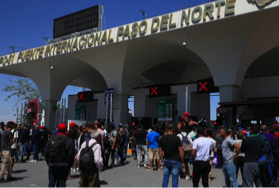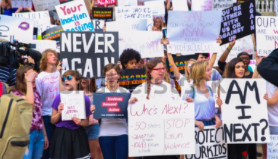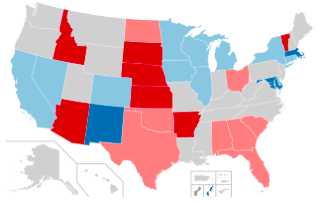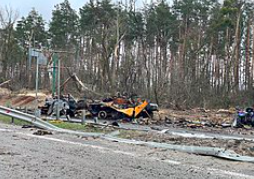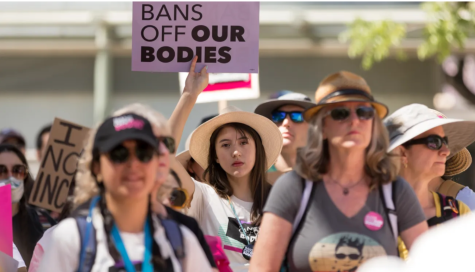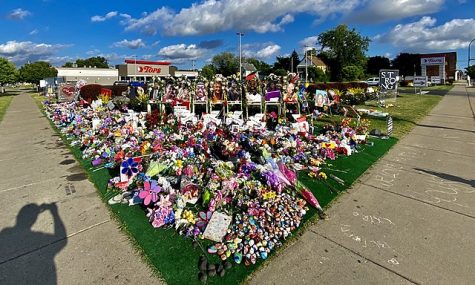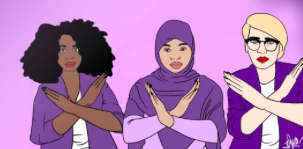Russian invasion of Ukraine: one year later
A dove is depicted in blue and yellow, the colors of Ukraine’s flag. The olive branch symbolizes peace. Photo courtesy of Shutterstock
February 13, 2023
On Feb. 4, 2022, Russian President Vladimir Putin announced a full-scale invasion of Ukraine.
In the following days, individuals and organizations spoke out against Russia’s aggression and instead called for peace and unity.
The majority of the world rallied behind Ukrainians and Ukraine’s president, Volodymyr Zelensky, offering support by advocating and raising money.
What seemed like a brief conflict between two nations turned into a year-long war that is still ongoing.
More importantly, according to estimates by Norwegian Chief of Defence Eirik Kristoffersen, the Russo-Ukrainian War has resulted in catastrophic numbers of casualties for both sides.
Kristoffersen said, “Russian losses are beginning to approach around 180,000 dead or wounded soldiers…
Ukrainian losses are probably over 100,000 dead or wounded.
In addition, Ukraine has about 30,000 civilians who died in this terrible war.”
As new global conflicts arise, the Russo-Ukrainian War is placed on the back burner, forgotten and discarded.
However, both countries continue to suffer daily as their citizens are displaced and subjected to mass violence.
Privilege of indifference
This modern-day genocide has proven that many people possess the privilege of indifference.
An indifferent person makes the conscious decision to be silent when they know people are suffering.
An absence of feelings promotes the normalization of human suffering and a disregard for human rights.
Parallels to Holocaust
Nearly 78 years after the liberation of Jews from Nazi concentration camps, the Russian invasion of Ukraine is drawing parallels to the Holocaust.
Author of Night and Holocaust survivor Elie Wiesel once said, “We must take sides.
Neutrality helps the oppressor, never the victim.
Silence encourages the tormentor, never the tormented.
Sometimes we must interfere.”
Images from 2022 show Ukrainian civilians lying lifeless in the streets of Bucha, Ukraine.
The people are burned, piled, and discarded like objects.
Furthermore, on Jan. 27, 2023, International Holocaust Remembrance Day, a gunman killed at least seven worshippers at a synagogue outside of the Old City in Jerusalem.
These examples prove that in today’s world, there are still people who are adamant that certain demographic groups are inferior to their own.
After decades of honoring survivors of oppression and persecution, history repeats itself.
Timeline of events
One year after the beginning of the Russo-Ukrainian War, people are called on to become upstanding citizens by honoring the innocent lives that have been lost.
Society must open its eyes to the events that have transpired over the past year.
Here is a month-by-month overview of Russia’s invasion of Ukraine:
February 2022:
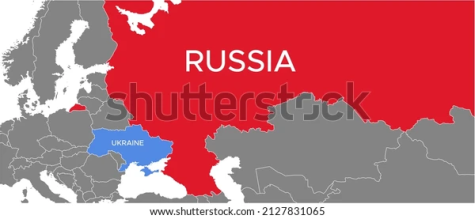 On the morning of Feb. 24, Russian troops invade Ukraine, launching attacks near Kyiv and Kharkiv. In a broadcast speech, Putin said, “Whoever tries to interfere with us, and even more so, to create threats for our country, for our people should know that Russia’s response will be immediate and will lead you to such consequences that you have never experienced in your history.” Photo courtesy of Shutterstock
On the morning of Feb. 24, Russian troops invade Ukraine, launching attacks near Kyiv and Kharkiv. In a broadcast speech, Putin said, “Whoever tries to interfere with us, and even more so, to create threats for our country, for our people should know that Russia’s response will be immediate and will lead you to such consequences that you have never experienced in your history.” Photo courtesy of Shutterstock
March 2022:
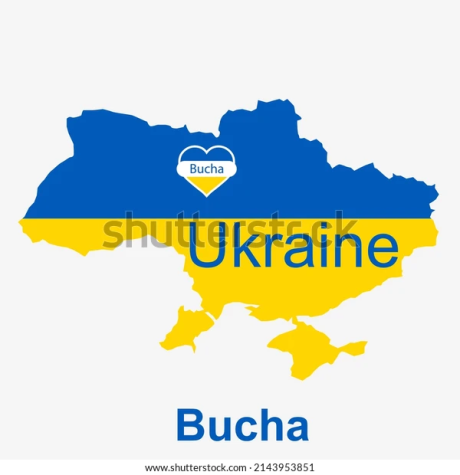
After Russia’s occupation of Bucha from March 4-31, Human Rights Watch researchers find extensive evidence of war crimes against Ukrainians. Unlawful killings, executions, and torture took place in Bucha, resulting in the discovery of mass grave sites where hundreds of Ukrainians were found dead. Photo courtesy of Shutterstock
April 2022:
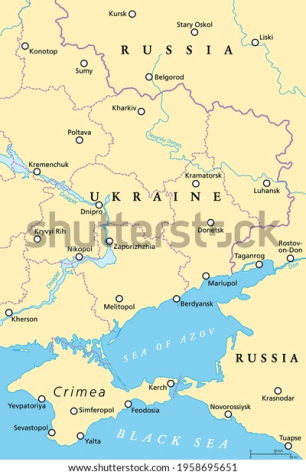
On April 14, the Moskva, the flagship of Russia’s Black Sea Fleet, sinks after the Ukrainian Navy struck the ship with Neptune missiles. The development allows Ukraine to later recapture Snake Island, a Ukrainian island in the Black Sea that had been occupied by Russian troops from the beginning of the war until June 2022. Photo courtesy of Shutterstock
May 2022:
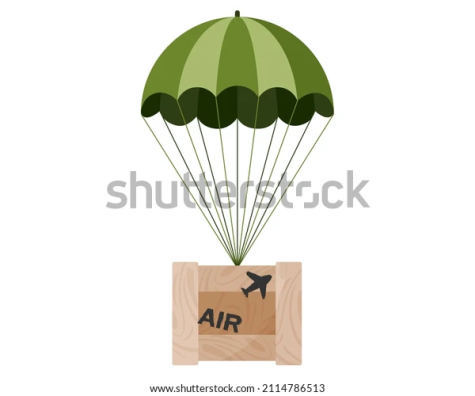
U.S. Congress approves a $40 billion aid package for Ukraine. According to the Center for Strategic & International Studies, the package is divided into the following: $19 billion for immediate military support, $16 billion for economic support to Ukraine, $3.9 billion to sustain U.S. forces deployed to Europe, and $2 billion for long-term support to NATO allies and DOD programs. Photo courtesy of Shutterstock
June 2022:
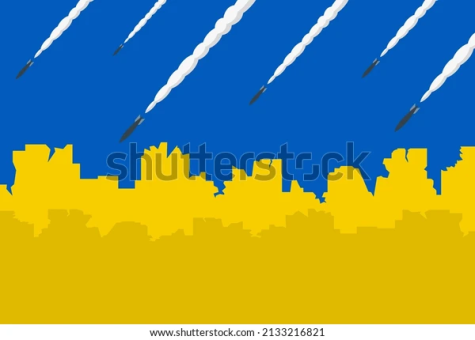
Ukrainian president Volodymyr Zelensky announces that Russian troops currently occupy 20% of Ukraine’s territory. Since February 2022, Russia has fired a total of 2,478 missiles at Ukraine. Photo courtesy of Shutterstock
July 2022:

Ukrainian forces execute a missile attack on a Russian ammunition warehouse located in Nova Kakhovka. The explosion killed seven people, and left 80 injured, including about a dozen soldiers. This incident comes after a Russian missile strike at a nine-story apartment complex in Odesa, Ukraine, which killed 21 civilians. Photo courtesy of Shutterstock
August 2022:

After being detained for six months, WNBA star Brittney Griner receives a nine-year Russian prison sentence after pleading guilty to two drug charges. On Ukrainian Independence Day, Russian forces launched a rocket in Chaplyne, killing 22 people and prompting U.S. President Joe Biden to announce their $3 billion contribution for military support. Photo courtesy of Wikimedia Commons
September 2022:
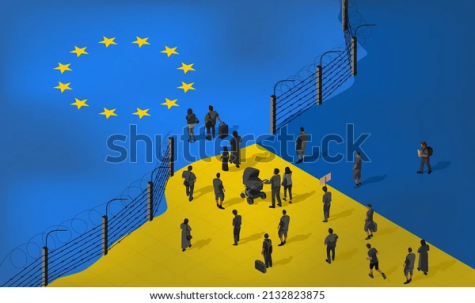
The escalated conflict between the two nations results in over 7.1 million refugees who leave Ukraine to seek asylum in bordering countries. The country of Ukraine began repairing the power and water units that were damaged by the recent missile strikes in Kharkiv. Photo courtesy of Shutterstock
October 2022:
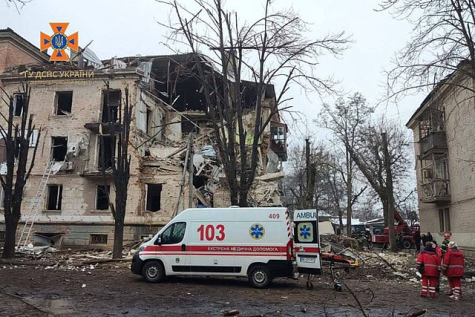
Russian troops steal ambulances and hospital necessities from Kherson as a scare tactic to impair the city’s living conditions. In a video address, Zelensky said, “The occupiers have decided to…take away medical equipment, ambulances, everything. They are putting pressure on doctors who still remain… to move to the territory of Russia. Russia is trying to make the Kherson region a no man’s land.” Photo courtesy of Wikimedia Commons
November 2022:
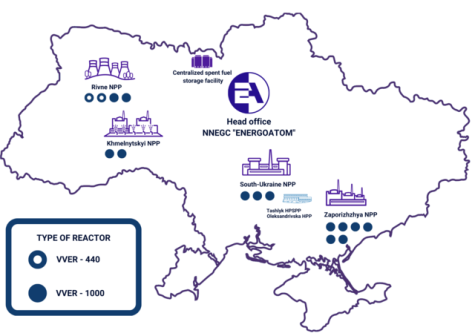
As power outages in Ukraine continue, resulting in the displacement of many Kherson residents. In earlier months, Russian troops targeted Kherson’s central city infrastructure to destabilize the population and force them to evacuate the territory. The frequent missile attacks destroyed more than half of Ukraine’s electricity system. Photo courtesy of Wikimedia Commons
December 2022:
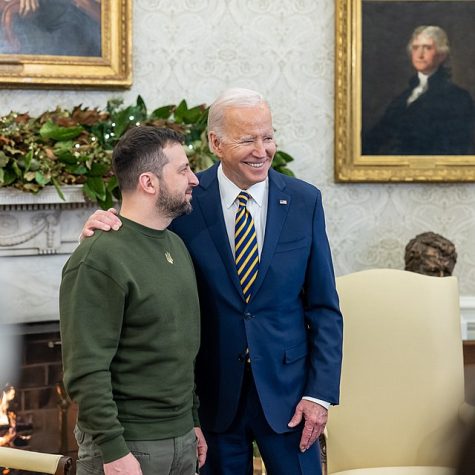
The Russian military sends 16 Iranian drones to attack Kyiv by targeting power plants and military warehouses to limit access to resources. Additionally, U.S. President Joe Biden meets with Ukrainian President Volodymyr Zelensky at the White House. Photo courtesy of Wikimedia Commons
January 2022:
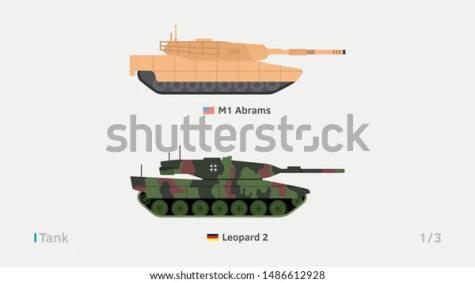
The U.S. announces plans to send 31 M1 Abrams tanks to Ukraine. Germany will additionally send Leopard 2 tanks. Photo courtesy of Shutterstock.
February 2023:
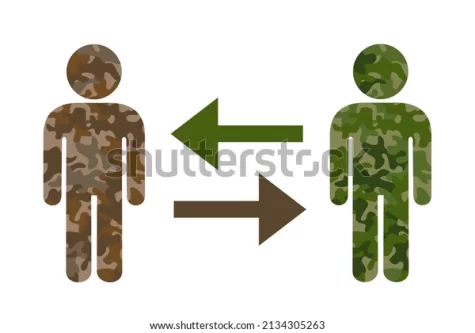
Exactly one year after the beginning of the Russo-Ukrainian War, the two countries exhange prisoners. According to CNN, Russia returned 116 prisoners of war to Ukraine, and Ukraine returned 63 Russian servicemen to Russia. Photo courtesy of Shutterstock
Becoming upstanders
Although it may not seem like the Russo-Ukrainian War has lasted for nearly 12 months, the effects are still sending irreversible shockwaves around the world.
In hopes of the war ending soon, the world must never forget the hateful events that have claimed the lives of far too many human beings.
To honor all of those lost to violence and genocide, society must stand up to indifference and become selfless in their actions.
By becoming educated on the current situation in Ukraine, people can raise awareness and denounce the spread of misinformation.
Furthermore, no matter the geographical difference separating a person from Ukraine, people can donate money and resources to show support.
On the website supportukrainenow.org, people can find educational resources along with reliable organizations to donate to.
If the world rallies together by displaying acts of kindness and generosity, Ukraine will receive the support it needs to persevere and prevail in the face of adversity.
Information courtesy of Al Jazeera, AP News, BBC News, CNBC News, and Human Rights Watch.




